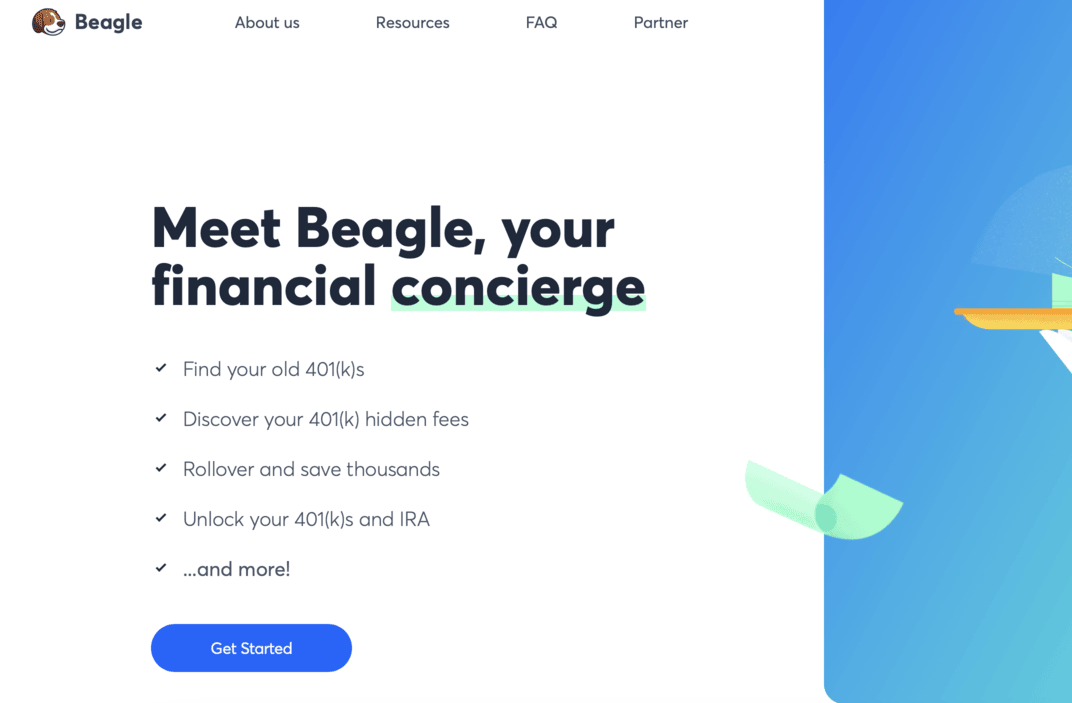Is Publishers Clearing House a Scam?
Laura Martisiute
Reading time: 6 minutes
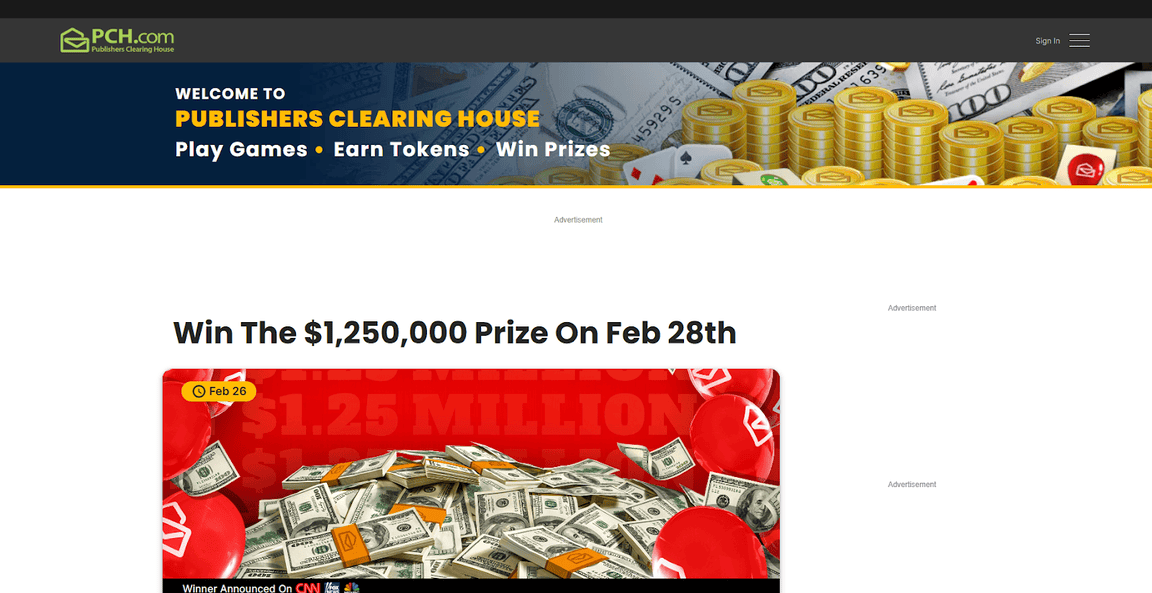
Table of Contents
If you’re thinking of entering a Publishers Clearing House sweepstake, you need to know: Is Publishers Clearing House a scam?
Below, we explain whether Publishers Clearing House is a scam and discuss some steps you can take to improve your safety with this company.
What Is Publishers Clearing House?
Publishers Clearing House (PCH) is a direct marketing company founded in 1953 by Harold Mertz in Jericho, New York.
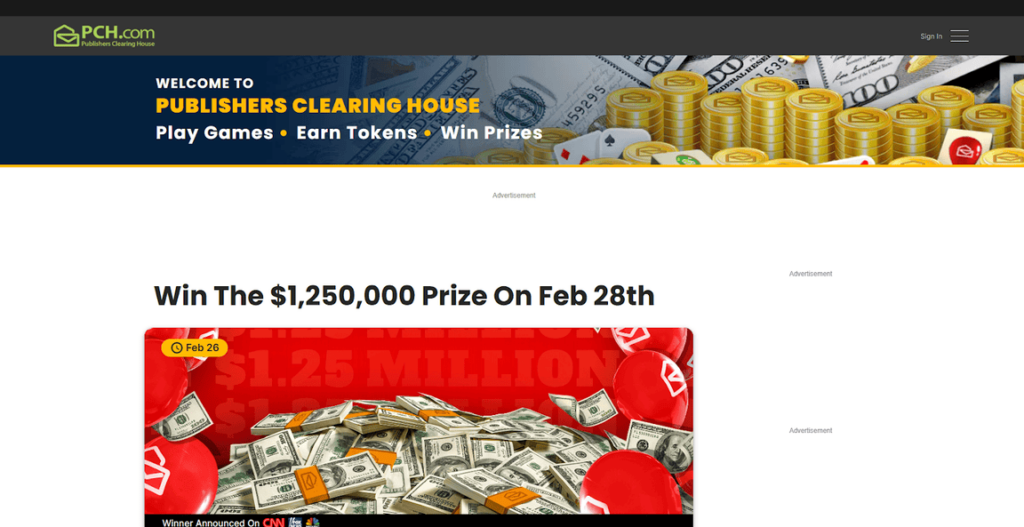
Initially established to offer bulk mail direct marketing for merchandise and magazine subscriptions as an alternative to door-to-door sales, it became known for its sweepstakes and prize-based games introduced in 1967.
These sweepstakes became a key promotional tool, leading to the iconic Prize Patrol events where winners are surprised with large checks.
Publishers Clearing House moved online in the 1990s, developing various digital platforms, like PCH.com, PCH Search and Win, and multiple gaming sites. Direct mail and product sales were discontinued over time.
Is Publishers Clearing House a Scam?
No, Publishers Clearing House is not a scam. However, its marketing tactics have led to distrust among consumers.
Publishers Clearing House faced numerous lawsuits from the 1990s onward over deceptive marketing practices, such as misleading odds of winning and implying purchases increased winning chances.
In 2023, the Federal Trade Commission (FTC) ordered PCH to overhaul its sweepstakes entry and sales processes, eliminate surprise fees, and pay $18.5 million to consumers.
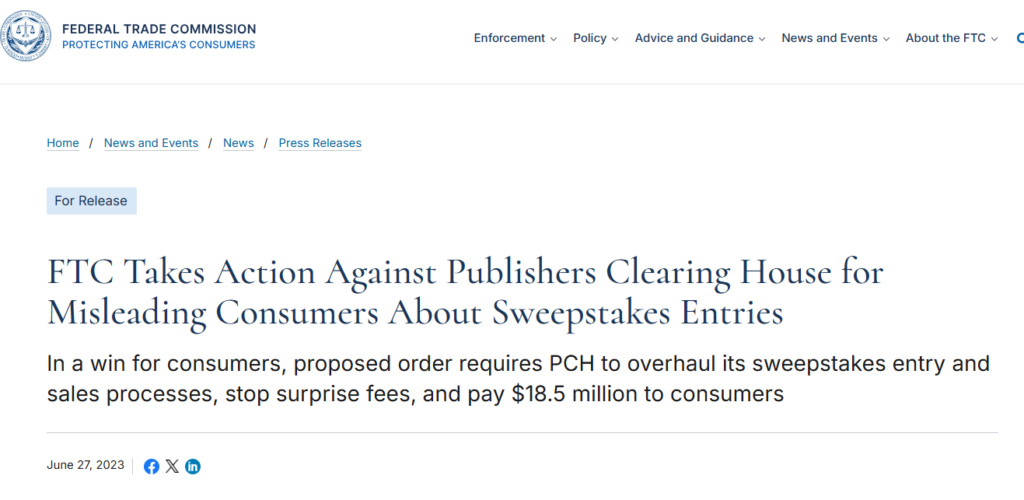
The FTC also issued a consumer alert detailing the deceptive practices in which PCH was found to engage.
Another thing contributing to Publishers Clearing House feeling like a scam is that scammers often impersonate it.
As Douglas County Sheriff’s Office writes, The “Publisher’s Clearing House” scam typically targets older adults who are contacted by phone, text, or email and told they have won a large sum of money in a PCH lottery (even though they may have not even entered it).
Scammers claim the victim needs to pay for “taxes” or “processing fees” through a wire transfer, cashier’s check, gift card, etc. They discourage victims from sharing the information with friends or family by telling them it should be a “surprise.”
Unfortunately, looking at online forums, PCH scams seem to be widespread.
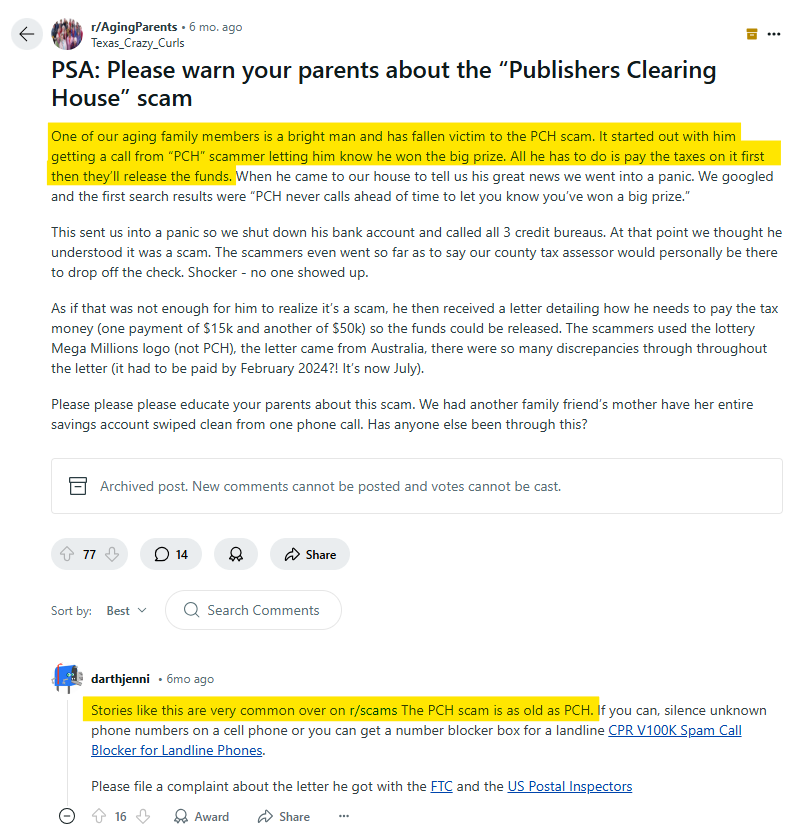
The United States Postal Inspection Service offers tips on how to spot a PCH scam. These include:
- Verify authenticity. Contact PCH directly at 1-800-459-4724 to confirm any winnings.
- Recognize official communications. PCH never calls winners in advance. If you receive unsolicited calls claiming to be from PCH, hang up.
- Protect your personal information. PCH only requests necessary details like name, address, date of birth, and email for verification and notification purposes.
- Know there’s no payment required. Legitimate sweepstakes, including PCH, never require you to pay fees to claim a prize.
PCH scams tend to increase after actual PCH contest drawings or sweepstakes events.
Security
In its privacy policy, PCH says it uses “reasonable and appropriate steps” to protect user information. It does not go into detail as to what these steps are.

PCH says it protects users’ credit card information through EV SSL encryption.

There have been no major data breaches associated with the PCH at the time of writing.
Privacy
In its privacy policy, PCH outlines the kind of data it collects, why, and with whom it shares it.
It collects identifying data (e.g., name, phone number, address, email address, etc.), technical data (e.g., IP address, MAID, etc.), engagement data (e.g., web pages you viewed), affinity data (e.g., data on your demonstrated interests), demographic data (e.g., gender, age, income level, etc.), and winner information (e.g., contest entered, prize choices, etc.)
It collects this information to provide users with relevant experiences on their website, transactional purposes, technical purposes, customer service purposes, reporting purposes, and marketing and advertising.
PCH can share your information with marketing partners, service providers, law enforcement, etc.
You can opt out of data use by PCH by writing to them.

In the last few years, several class action lawsuits were filed against Publishers Clearing House, alleging that it unlawfully sold or rented subscribers’ personal and purchase information (like names, addresses, and demographic details) to third parties, including data miners, list brokers, political organizations, and non-profits, without consent.
So, Should You Participate In Publishers Clearing House Sweepstakes?
Depends.
Participating in Publishers Clearing House sweepstakes can be a fun and potentially rewarding experience.
That said, the company has faced multiple lawsuits over deceptive marketing practices and unauthorized sale of personal information.
If you decide to participate in Publishers Clearing House sweepstakes, be wary of scams misusing PCH’s name.
How to Participate In Publishers Clearing House Sweepstakes Safely
Here are some tips for a safer experience with Publishers Clearing House Sweepstakes.
- Understand how it works. PCH sweepstakes typically require you to enter through their official website (pch.com) or mail-in entries from their legitimate mailers. Most PCH sweepstakes do not require a purchase to enter. Also, the genuine PCH Prize Patrol will visit winners in person to present prizes without prior notice.
- Verify communications. PCH will communicate through official channels. If you receive a call, email, or message claiming to be from PCH, use their official phone number to verify its authenticity.
- Check email addresses and websites. Scammers often use email addresses that look similar to PCH’s official address but may have slight variations. Always visit PCH through their official website rather than clicking on links in emails.
- Beware of upfront fees. Legitimate PCH prizes don’t require you to pay taxes, fees, or processing charges upfront. If you are asked to send money or purchase gift cards to claim a prize, it’s 100% a scam.
- Protect your personal information. PCH will only ask for necessary information such as your name, address, date of birth, and email to verify your eligibility and notify you of winnings. Do not provide sensitive financial information like bank account details or Social Security numbers.
- Report suspicious activity. If you encounter suspicious communications, report them to the BBB Scam Tracker.
- Educate yourself and those you care about. Share information about PCH scams with family and friends, especially older adults who are often targeted.
- Read PCH policies. Before entering any sweepstakes, thoroughly read PCH’s rules and guidelines to understand the terms and conditions.
Our privacy advisors:
- Continuously find and remove your sensitive data online
- Stop companies from selling your data – all year long
- Have removed 35M+ records
of personal data from the web
Save 10% on any individual and
family privacy plan
with code: BLOG10
news?
Don’t have the time?
DeleteMe is our premium privacy service that removes you from more than 750 data brokers like Whitepages, Spokeo, BeenVerified, plus many more.
Save 10% on DeleteMe when you use the code BLOG10.

